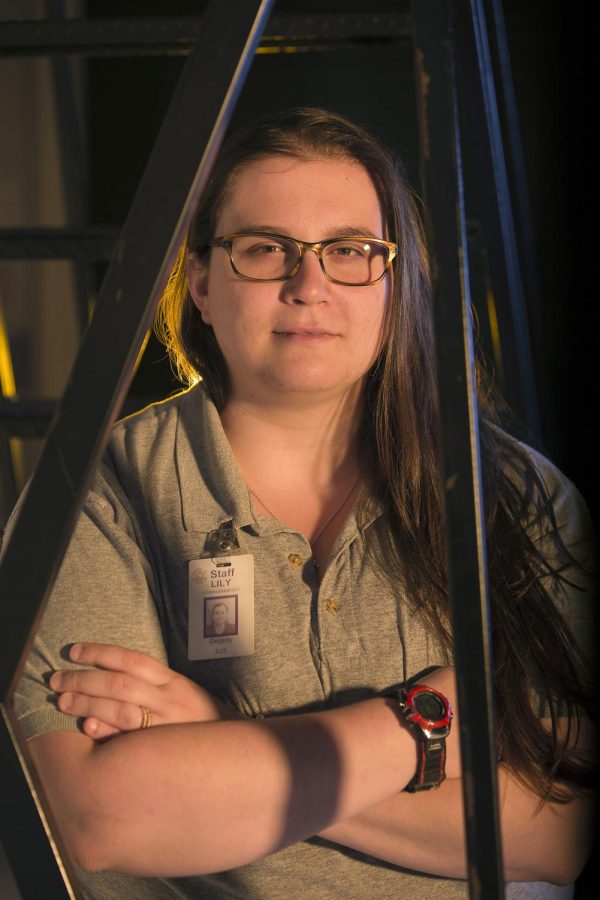WKU student doubles as a deputy jailer on the weekends
September 29, 2015
It’s 7 a.m. on a Friday morning, and WKU senior and Deputy Jailer Lily O’Shaughnessy’s tennis shoes squelch with every step on the sticky concrete floor during her first round of head count for the day.
“I’ll probably just cry by the end of the day,” she says with a chuckle after explaining that being assigned booking on a Friday is her least favorite way to spend the time.
O’Shaughnessy, a full-time student, spends her weekends at the jail — usually in one of two positions. In booking, she handles intake and outtake paperwork, and when she roves the dorms, she makes sure inmates are behaving properly and where they are supposed to be.
O’Shaughnessy began working at the jail in January of 2013 after she moved from Connecticut to Franklin to live with her mom. Before changing states, O’Shaughnessy studied criminology at Central Connecticut State University and eventually received an associate degree from the Middlesex Community College in Bedford, Massachusetts.
After taking a break from school and rethinking her priorities, she decided to enroll at WKU to study psychology. O’Shaughnessy plans to use her background in criminology and degree in psychology to get a job in the FBI as a criminal profiler.
“I always watched ‘CSI.’ That’s what made me want to work in the criminal justice system,” she said.
This career path was suggested to O’Shaughnessy by a professor at Middlesex Community College who encouraged her to pursue her passion.
Criminal profiling in the FBI exists in a specialist department: the National Center for the Analysis of Violent Crime.
According to the FBI’s Investigations and Operations Support Web page, people who work for the NCAVC help other law enforcement agencies “involved in the investigation of unusual or repetitive violent crimes, threats, terrorism, cyber, white collar crime, public corruption and other matters.”
O’Shaughnessy is further pursuing her interests in psychology and criminal justice this semester by taking a course called Psychology and Law with Krisstal Clayton, assistant professor in the department of psychology. Clayton believes there is a direct correlation between the study of psychology and the criminal justice system.
“Ask any person in law enforcement … and they will say that the job revolves around psychology because it depends on deflating a situation and reaching a negotiation,” Clayton said.
Clayton is taking her class on a field trip to the jail in the coming weeks to show them how that aspect of law enforcement functions. With three years of working with criminals under her belt, O’Shaughnessy is a step ahead of her classmates who, she said, are worried about the trip.
“I’m there every week,” she said. “It’s not that bad.”
Every week at the jail, O’Shaughnessy must deal with a variety of situations. In one instance, an elderly inmate claimed to be having a “stroke” because of intense chest pain he was experiencing.
After the nurse gave him medicine, he asked O’Shaughnessy if he could talk to his wife to let her know he was okay. She told him maybe but later explained that he would not be allowed to contact his wife because he was arrested for domestic violence.
She said it is easier to let inmates think they might get what they want.



















![Megan Inman of Tennessee cries after embracing Drag performer and transgender advocate Jasmine St. James at the 9th Annual WKU Housing and Residence Life Drag Show at Knicely Conference Center on April 4, 2024. “[The community] was so warm and welcoming when I came out, if it wasn’t for the queens I wouldn’t be here,” Inman said.](https://wkuherald.com/wp-content/uploads/2024/04/smith_von_drag_3-600x419.jpg)


